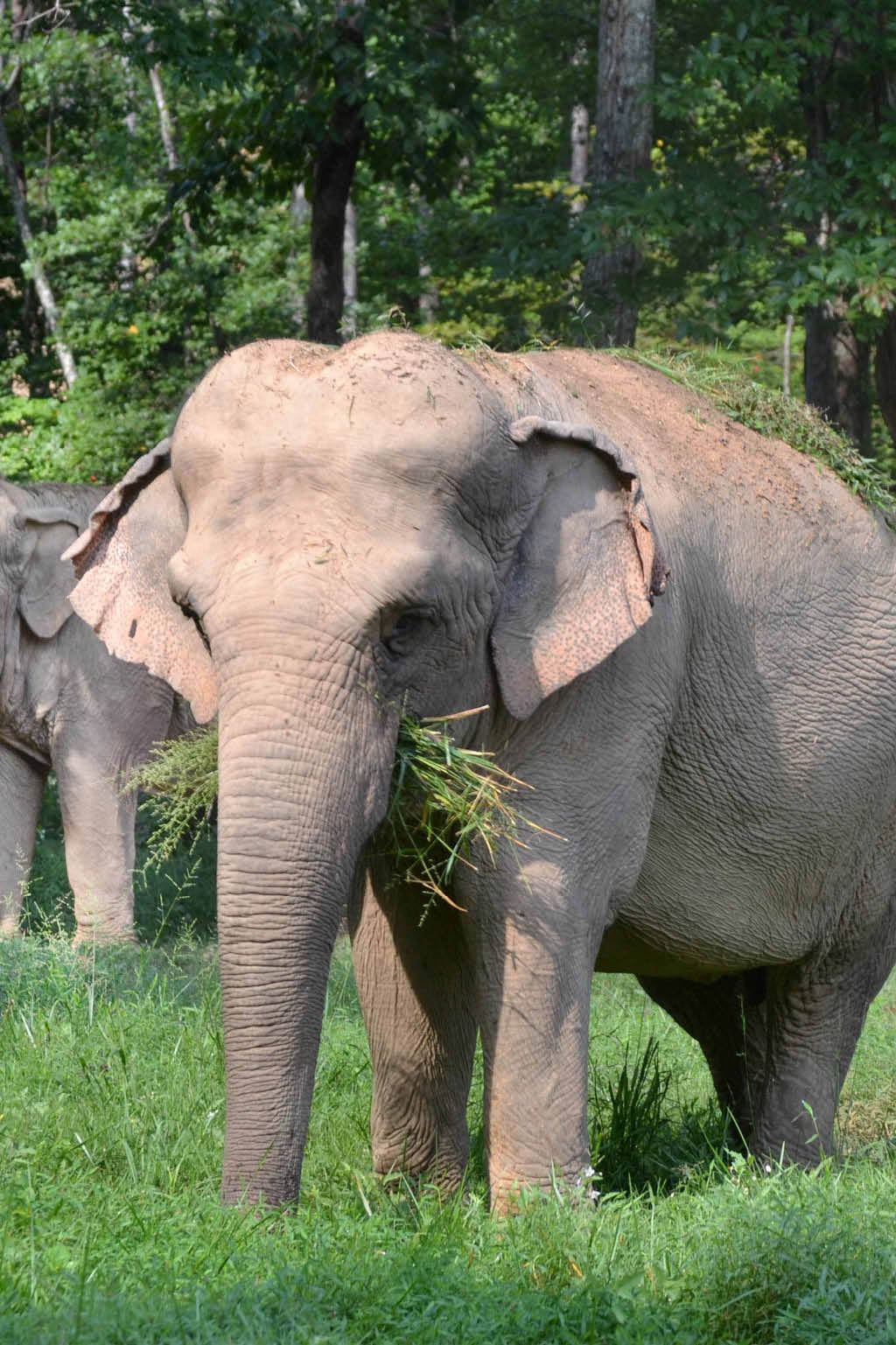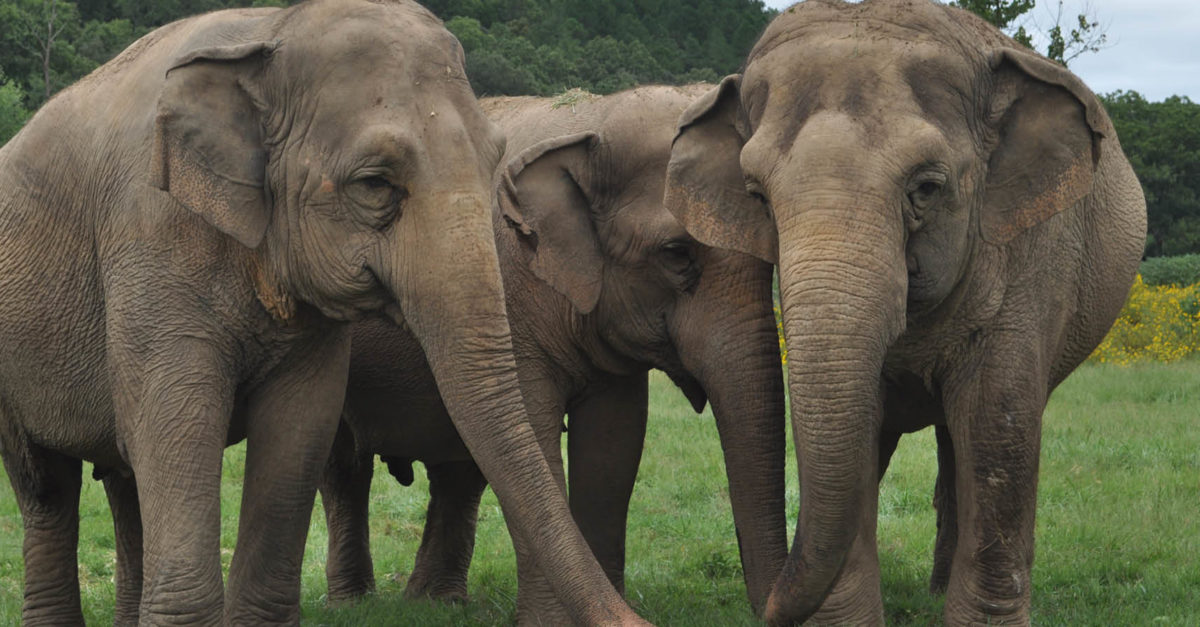Helping the Herd
While we often associate high levels of intelligence with people, such as Steve Jobs, Marie Curie, and Albert Einstein, there are thousands of creatures on this Earth that exhibit extraordinary levels of emotional and cognitive complexities as well—elephants being a prime example. There’s one place that has made it its mission to create awareness for these majestic mammals: The Elephant Sanctuary in Hohenwald, Tennessee, sixty miles southwest of Nashville.
Founded in 1995 by Carol Buckley and Scott Blais, The Sanctuary originally served as a safe haven for Tarra, a retired performing Asian elephant. Lifelong care has since been provided to twenty-seven other Asian and African elephants since the inception of this refuge. The 2,700-acre facility has spring-fed lakes, three different habitats, and other features conducive to the growth and well-being of these mammals.
Its mission serves to provide captive elephants with individualized care, the companionship of a herd, and the opportunity to live out their lives in a safe haven dedicated to their well-being; and to raise public awareness of the complex needs of elephants in captivity, as well as the crisis facing elephants in the wild. While both Buckley and Blais have moved on from The Sanctuary, their legacy to protect elephants remains.
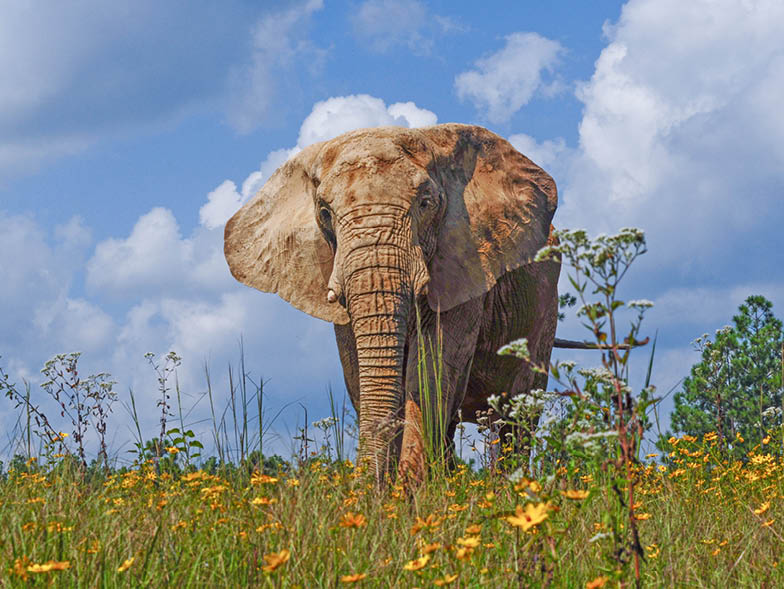
A Familial Bond
There’s a lot to learn about this keystone species (which has an entire ecosystem dependent on its survival). What’s fascinating about these creatures is their emotional depth, matched with their complex cleverness as animals, which is thought to surpass many different types of species in the animal kingdom. Elephants can feel happiness, sadness, grief, and various other emotions across the spectrum. They have a certain level of self-awareness and memory, can solve problems and communicate, and can even remember the vocalization of other elephants they once met years later.
One of the more prominent distinctions that elephants have over other mammals is their keen sense of herd. The Sanctuary helps facilitate this primal instinct by making sure that elephants first get to know each other on their own time with a fence as a barrier, which they communicate through. The elephants are able to see, hear, and smell one another. Then things progress naturally, and playdates are set up and observed by the staff. These playdates are put into place so that elephants can reinforce those herd-like bonds, which strengthens aspects of socializing, sparring, and playing. The entire herd will help raise a calf as it’s growing up—over a decade of caring and nurturing. They protect each other as a family unit.
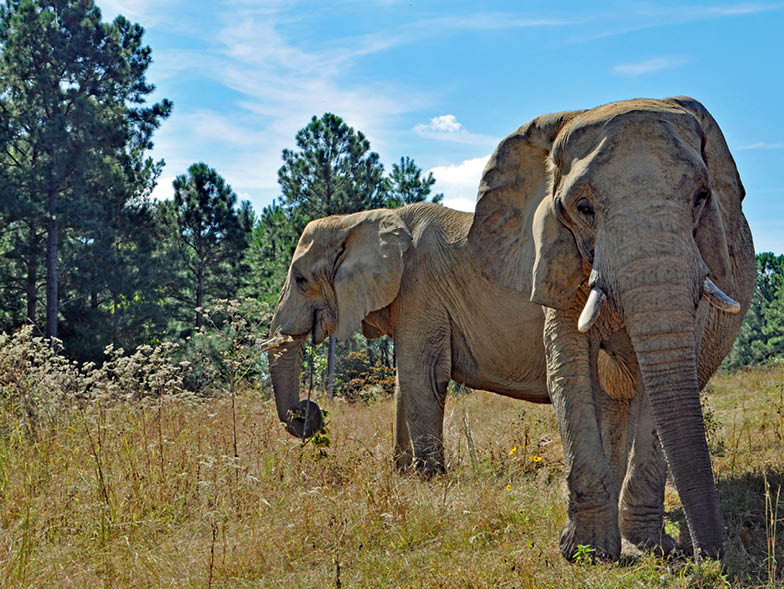
A Safe Haven
Unfortunately, the crisis facing this species lives on. There’s still a large poaching problem, due to the ivory tusk market that, while illegal, still exists. Habitat loss is also occurring, with human activity and agriculture changes affecting the wild habitats that these creatures dwell in. These two dangers are part of why Asian elephants remain endangered and African elephants are considered threatened. Elephants at The Sanctuary come from performance and exhibition environments and are provided with an oasis from such harmful surroundings.
Joy Owens, education manager for The Elephant Sanctuary, explains the process for what happens when the animals are welcomed to this refuge, saying, “Elephants who are brought into The Sanctuary from various backgrounds are assessed behaviorally and for their general well-being. The different species live in their respective habitats and barns, and they are gradually integrated into the existing social structure.”
The caretakers at The Sanctuary pride themselves on providing the best possible individualized care to these animals. Each elephant is assessed and treated according to its individual needs. Through its various efforts, The Sanctuary is bringing awareness to the elephant crisis and supporting positive animal treatment, and it also supports several international organizations that work on behalf of elephants in the wild and in captivity.
Educating the world about this complex species is another vital aspect of The Sanctuary’s mission. By way of Skype, those who work in the education department are able to teach thousands of students with their Distance Learning program, with lessons spanning from what they do at The Sanctuary to more general information about elephants. They reach those in grades K through 12, college classes, and various community groups to shed light on this species.
The ever-popular EleCam also allows you to view what the elephants are up to at any time. These programs are important to The Sanctuary’s mission, as the grounds and habitats are closed to the public. What’s more, its success has allowed The Sanctuary to further its reach with the Elephant Discovery Center. Owens emphasizes the significance of this renovated space, saying, “It’s a learning center in downtown Hohenwald that gives people a place to ‘visit’ The Sanctuary without compromising one of our core values. Renovations have been done to make it more of a destination, where people can really experience the beauty of The Sanctuary. Here, there are interactive features, special events, and various exhibits that help to further the education surrounding this species.”
Owens also emphasizes the importance of its EleAmbassador program, which was put in place to “allow volunteers to be trained by Sanctuary staff to spread the word on what The Sanctuary does in their respective home communities.” She continues by noting, “These volunteers have greatly expanded our reach by adding a personal face to The Sanctuary in places far and wide that we don’t have the staffing to visit.” The various programs sanctioned by The Elephant Sanctuary help educate people who otherwise might know virtually nothing about these animals.
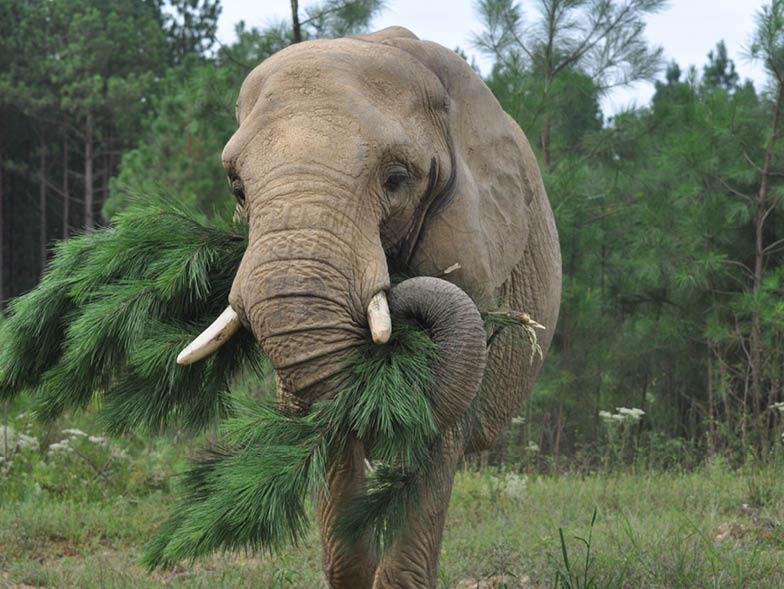
Trotting Toward Change
By meeting the physical, social, and psychological needs of its elephants, The Sanctuary has greatly impacted the future of this species. In a sense, it has been a voice for elephants and uses its power to support these creatures with dignity and respect—something that, in a previous environment, they may not have experienced. When asked about how The Elephant Sanctuary goes about helping these complex creatures, Owens simply states, “These are such intelligent animals, and no two elephants are completely alike. Meeting their various needs means providing a refuge—a safe space where force is never used to manage elephant care.” Providing sanctuary, indeed.
For more info, visit elephants.com
